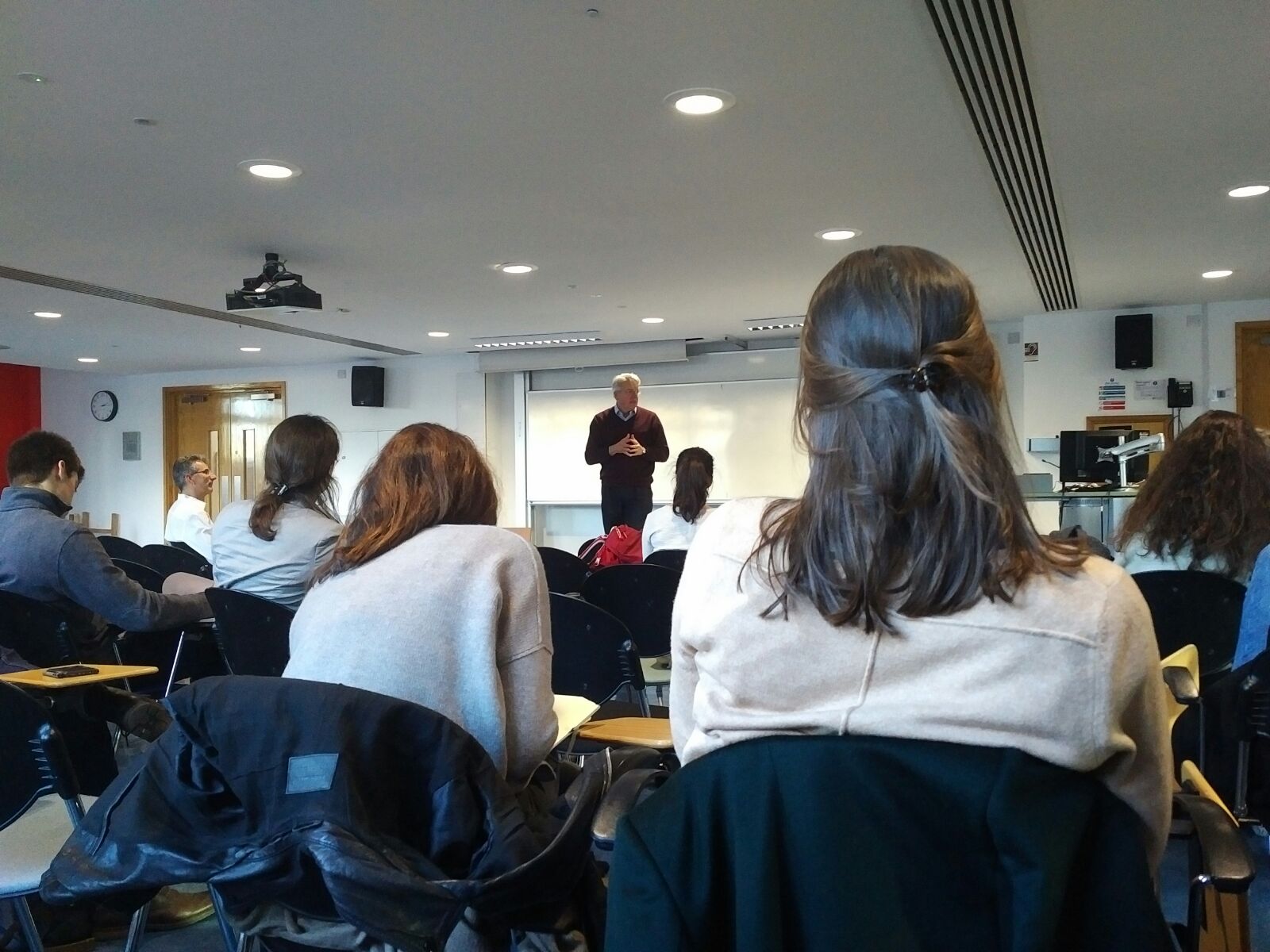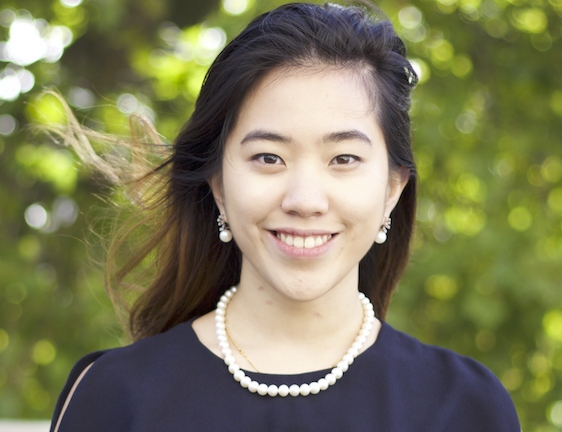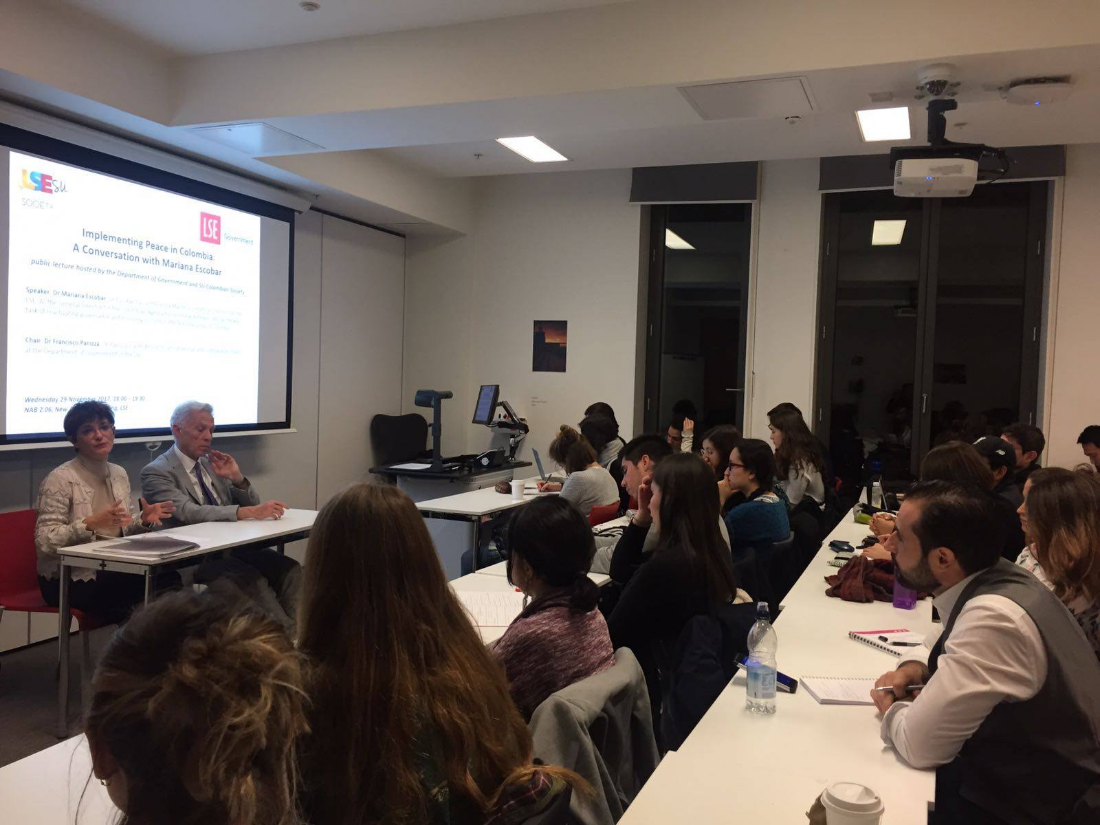Haisley Wert, MSc Development Management candidate, reflects on a recent public lecture from Michael La Cour, Managing Director of IKEA Food Services AB, about the role and responsibility of corporations in addressing the challenges of the food system.
Homage embraced the memory of IKEA founder, Ingvar Kamprad, on the Tuesday evening lecture three days after his passing. Though his body had counted 91 years, his leadership was timeless. He imbued a sense of humble modernity into his life’s work, while at the helm of change and trying again. After all, “creat[ing] a better everyday life for the many people” can only meet families at the dinner table with a sense of grounded futurism.
The profound authenticity of respect shared amongst the team was evident. Not only did Michael La Cour, Managing Director of IKEA Food Services AB, purposefully undertake the lecture as an opportunity of remembrance that punctuated the wake of tragedy, but the whole management cohort attended in solidarity. Ingvar Kamprad might have smiled at their unassuming enactment of togetherness and share responsibilities – two of IKEA’s core values.
The IKEA value system serves the company (and the world) well. With almost a billion annual store visits in 49 countries, something greater than the Billy bookcase has achieved transcendent universality. The IKEA experience cultivates health and sustainability for the many. The “many” instanced here include the 660 million yearly restaurant visitors, 18,000+ restaurant co-workers, their 200+ ingredient suppliers, and leadership by example for public and civic society at large.
Given the gravity of the food system responsibility that IKEA upholds, it seems playfully ironic to recall their other business. Mr. La Cour quipped with a touch of seriousness, “hopefully, in the future, people will say: ‘IKEA is a great place to eat, and by the way, they also sell some furniture”. Building on both increasing consumer preference for healthy food and the United Nations’ Sustainable Development Goals (SDGs), their Better Food for People & the Planet strategy emerged. Their manifesto is tri-part: encourage “healthy and sustainable living” in a “circular and climate positive” way that leads a “fair and equal society”.
This trio convenes in an action-oriented pact, and, as consistently demonstrated by visible proof points, transforms goals into engaged stewardship. Renewables increasingly power its stores, with almost three-quarter of a million solar panels anchored to their roofs and 327 wind mills harnessing energy around the clock. Meanwhile, the Food is Precious initiative intends to halve their food waste by 2020 to further curb greenhouse gas emissions.
Through setting a positive example, IKEA has already lightened the thud of corporate carbon footprints within and across industries—peers like HP and Google have followed suit. But the integrity behind IKEA’s bold assertions structure more than the blueprint of its own wheelhouse. As a founding member of RE100, they rallied the commitment of 123 industry peers “to go 100% renewable”. Crucially, collaboration reaches further, across the bounds of private sector convention. Last summer, Michael La Cour joined change-makers from public, private, and civil society sectors to represent IKEA in the Champions 12.3 alliance that advances Target 12.3 of the SDGs by reducing world-wide food waste. Only by “com[ing] together with government and inspiring young people”, Mr. La Cour maintained, can systematic change happen.
Perhaps the words of Ingvar Kamprad capture it best: “Most things still remain to be done. A glorious future.” Most things, indeed, but IKEA elevates the hopes and reality of what the future of corporate sustainability means.
Haisley Wert is a MSc Development Management candidate in the Department of International Development at the London School of Economics and Political Science.
The views expressed in this post are those of the author and in no way reflect those of the International Development LSE blog or the London School of Economics and Political Science.





